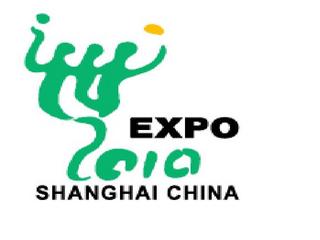For several years the position of Polish exporters on the markets of the former Commonwealth of Independent States has been clearly weakening
Published:
5 May 2003 y., Monday
In order to spur on trade, presentations of Polish exporters are gaining popularity. One such presentation is the Polish National Exhibition in St. Petersburg.
Geographic proximity, relatively small competition from local manufacturers who are not capable of satisfying the growing demand for modern products and, contrary to common belief, the increasingly wealthy and demanding customer, are the advantages of the "eastern market." Why then does trade with the countries of the Commonwealth of Independent States (CIS) constitute as little as 7.1 percent of the global value of Polish export?
The position of Polish companies is weakened by competition from the Western businesses that are perfectly aware of the perspectives which an active and strategically planned entry into Eastern markets can accomplish. Entrepreneurs from Germany, France and the United States, supported by the appropriate funds, first promote and then successfully sell their products in Russia and Ukraine or make direct investments there.
The decrease in the amount of Polish agriculture and food products exported to Eastern markets has stemmed from the fact that big international concerns such as Nestlé, Danone or Unilever directly entered this strategic area. However, the issue of Western competition is only a part of the answer to this question and the possibility of development for Polish exporters on the markets in the former Soviet Union.
One of the most serious difficulties Polish companies encounter is a considerable risk connected with signing commercial contacts with partners from the East who frequently appear to be insolvent and do not honor their contracts. According to Robert Stawski from the Promotion Chamber of the Polish Chamber of Commerce, businesspeople from Russia frequently do not understand the term "advance payment" and sometimes want to pay for the products only after they sell them. For obvious reasons, these terms are hard to accept for Polish manufacturers, which are mostly small and medium-sized companies. The state does not guarantee any protection for companies against situations in which partners from Russia, Belarus or Ukraine do not fulfill the terms of a commercial contract.
Šaltinis:
warsawvoice.pl
Copying, publishing, announcing any information from the News.lt portal without written permission of News.lt editorial office is prohibited.
The most popular articles
 The European Parliament's proposal for its own operational budget for 2011 includes the financing of measures in preparation for enlargement with Croatia.
more »
The European Parliament's proposal for its own operational budget for 2011 includes the financing of measures in preparation for enlargement with Croatia.
more »
 Links between business and the academic world need to be strengthened but higher education institutions must retain their autonomy and public support, says a resolution adopted on Thursday by the European Parliament.
more »
Links between business and the academic world need to be strengthened but higher education institutions must retain their autonomy and public support, says a resolution adopted on Thursday by the European Parliament.
more »
 The Spanish Minister of Economy and Finance, Elena Salgado, will present the additional fiscal tightening measures set out by the Spanish Government to her eurozone (Eurogroup) counterparts on Monday; the measures were required by Spain’s European partners as a condition of approving the plan to bolster the euro on 9 May.
more »
The Spanish Minister of Economy and Finance, Elena Salgado, will present the additional fiscal tightening measures set out by the Spanish Government to her eurozone (Eurogroup) counterparts on Monday; the measures were required by Spain’s European partners as a condition of approving the plan to bolster the euro on 9 May.
more »
 The European Commission has opened an in-depth investigation under EU State aid rules into capital injections destined to two subsidiaries of state owned company Elan Skupina in Slovenia.
more »
The European Commission has opened an in-depth investigation under EU State aid rules into capital injections destined to two subsidiaries of state owned company Elan Skupina in Slovenia.
more »
 GDP growth in the EU expected to gradually pick up, though recovery less robust than past upturns.
more »
GDP growth in the EU expected to gradually pick up, though recovery less robust than past upturns.
more »
 The EESC tabled its opinion on the regulation of alternative investment funds, such as hedge funds and private funds. Although endorsing the much debated proposal of the European Commission, the EESC calls for uniform risk data provision for all such funds and emphasizes their responsibility in triggering the crisis.
more »
The EESC tabled its opinion on the regulation of alternative investment funds, such as hedge funds and private funds. Although endorsing the much debated proposal of the European Commission, the EESC calls for uniform risk data provision for all such funds and emphasizes their responsibility in triggering the crisis.
more »
 Concluding the process and deciding on the schedule for releasing the funds agreed on for Greece, as well as examining and learning lessons from the crisis for the governance of the eurozone, will be the focus of the discussions of the heads of state and government at the meeting in Brussels this Friday.
more »
Concluding the process and deciding on the schedule for releasing the funds agreed on for Greece, as well as examining and learning lessons from the crisis for the governance of the eurozone, will be the focus of the discussions of the heads of state and government at the meeting in Brussels this Friday.
more »
 The EU pavilion at the world expo in Shanghai marks the first time the EU has presented itself to a large Chinese audience.
more »
The EU pavilion at the world expo in Shanghai marks the first time the EU has presented itself to a large Chinese audience.
more »
 Shanghai's World Expo offers visitors plenty of fun offering bizarre things to do at over 200 pavillions competing for attention.
more »
Shanghai's World Expo offers visitors plenty of fun offering bizarre things to do at over 200 pavillions competing for attention.
more »
 The European Investment Bank (EIB) is providing a loan of EUR 150 million to MVM Zrt. for the capacity increase and the extension of a high-voltage transmission network, partly constituting priority axes of the Trans-European Energy Network (TEN-E) in Hungary.
more »
The European Investment Bank (EIB) is providing a loan of EUR 150 million to MVM Zrt. for the capacity increase and the extension of a high-voltage transmission network, partly constituting priority axes of the Trans-European Energy Network (TEN-E) in Hungary.
more »